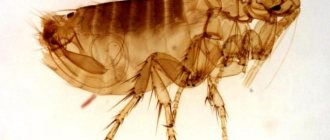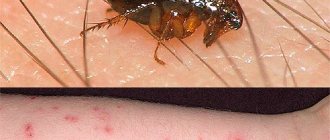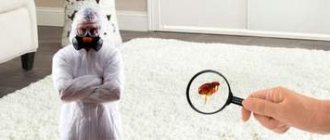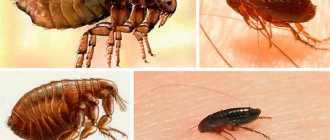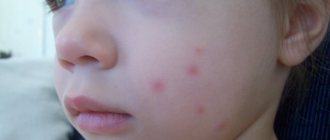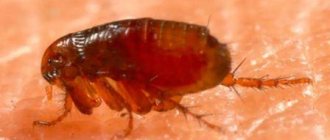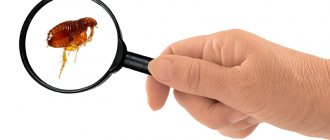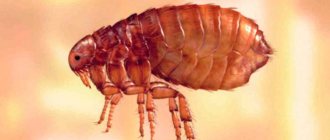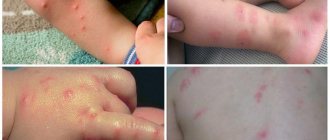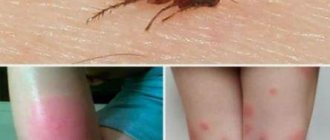Are fleas transmitted from dogs to humans?
Fans wonder: can fleas pass from a dog to a person? Yes, this is a serious issue that needs to be looked at carefully. These are dangerous blood-sucking insects that can introduce infection into the body.
Stroking the dog once is safe; during it, insects will not be able to jump onto the surface of the body. This will not save you from germs, so you need to wash your hands with soap. And if a dog starts to itch after a walk outside, this may be a signal that it has parasites.
The owner should take into account that furry dog breeds may have more fleas:
- Affenpinscher;
- Alaskan Malamute;
- Border Collie;
- Irish Wolfhound;
- Pekingese;
- Pomeranian Spitz;
- Samoyed dog;
- Tibetan mastiff;
- Chow-chow;
- Sheltie;
- Shih Tzu;
- Japanese Spitz;
- Scottish Collie.
It is advisable to immediately begin removing bloodsuckers. If you start it, then after a short period of time there will be a lot of parasites, they will begin to spread and bite your legs. With severe hunger, other parts of the body are attacked - arms, back, stomach, face.
The food is the blood of animals.
They live and hide in the fur of dogs. And the hair on people’s bodies will not allow bloodsuckers to settle in and lay eggs. This means that insects cannot settle on the body.
Are fleas transmitted from dogs to humans? Insects attack people when they feel hungry. The main habitats are the bedding of dogs, cats, garbage, where there is an increased likelihood of being bitten.
Reasons for appearance
The flea invasion occurs in the warm season and begins in spring and ends in October. Parasites choose their refuge in private houses or on the first floor of apartment buildings.
Fleas can be caused by contact with other dogs.
The main sources are:
- dirty entrances;
- neighboring apartments;
- infected pets;
- flea colonies in the basement or attic;
- presence of rats and mice;
- garbage dumps.
Fleas lay eggs in an animal's fur, so the owner can transmit parasites to his pet if he first pets an infected dog and then a healthy one.
Do dog fleas bite people?
It's safe to say that dog fleas bite people. And they do this often, especially if there are a lot of them, or when the pet is not at home, but its bedding and things are left behind. Insects can attack when hungry.
The parasite's mouthparts are designed to feed on blood. Insects have an excellent sense of smell; prey is identified using carbon dioxide during breathing. As soon as the bloodsucker reaches the surface of the body, it bites into the skin and begins to suck blood.
Fleas bite the surface of the legs, and when there are many bloodsuckers, they infect the body. They will inflict bites, which after a certain period begin to itch. When scratching, red spots appear on the surface of the body. And if you get an infection, the wounds will tear and rot. It is better to treat the affected area with an antiseptic and do not touch it.
Prevention of animal infection
You can prevent blood-sucking insects from appearing on your dog if you regularly examine it after walks. Since fleas can even travel on human clothes and shoes, at the slightest suspicion of their presence, the pet should be bathed with an insecticidal shampoo.
These insects are active all year round, so animals constantly need effective protection. This is especially true for those dogs whose owners transport them to the countryside for the summer. You can protect animals from fleas and ticks using the same collars, drops and sprays that are used to get rid of insects and arachnids.
Are dog fleas dangerous for people?
Are dog fleas dangerous for humans?
We can answer in the affirmative; blood-sucking parasites pose a high danger to people. Bloodsuckers can cause an infection that can be fatal.
Why are dog flea bites dangerous?
As we found out, fleas can bite pets and people. You should be prepared that along with the bite you can get an infection that can cause health problems.
Why flea bites are dangerous for people:
- allergy. People are often allergic to saliva. During it, redness, swelling, itching are observed, and papules are formed. Rarely, bites cause eczema or psoriasis;
- infection. As soon as the parasites bite, the person begins to itch until wounds form. They become infected. It is identified by signs - severe redness, pain, inflammation and discharge of pus.
What diseases do parasites carry?
Dog owners should know what diseases are transmitted by flea bites, because they pose a danger to life. Almost all bloodsuckers carry dangerous infectious diseases.
Just look at the list:
- helminthiasis The disease manifests itself upon contact with an insect: if you crush it and do not wash your hands, you can spread the infection with food. You get worms. Bloodsuckers carry tapeworms, roundworms, flukes and others;
- brucellosis. During infection, sweating occurs, body temperature rises, and joint pain is observed. Then almost all systems in the body are affected. If you do not begin to treat the disease, it leads to disability;
- tularemia. This is a bacterial disease during which there is increased inflammation of the lymph nodes. Fever and signs of poisoning are noted;
- salmonellosis. Parasites cause a serious intestinal infection. Manifestations include foul-smelling, foamy stools, abdominal pain, bloating, fever;
- typhus When infected with the disease, a fever appears, and a rash with a spotty and pink structure forms on the surface of the body.
Methods for controlling dog fleas
Fleas are unpleasant parasites for animals and people, so it is worth fighting them after they are found on a dog. While there are only a few of them, they won’t bite or cause harm, but don’t forget that insects multiply quickly, so don’t hesitate to remove them.
If you find bloodsuckers in a dog, you need to disinfect the room.
To do this, you will need to make a solution of baking soda, salt, and insecticidal shampoo. It is worth using an insecticide - aerosol, powder or solution.
When processing, you should follow the following steps:
- vacuum the apartment, furniture, carpets;
- things should be washed or dry-cleaned, especially those that may harbor insects;
- dog bedding should be treated, or better yet, thrown away;
- Pet household items need to be treated;
- carry out wet cleaning in the house. To do this, you need to use a solution - a pack of salt or soda per 10 liters of water;
- When processing, close the windows, move the furniture, wash hard-to-reach places - baseboards, cracks, corners, window sills, furniture walls, carpets and other surfaces;
- pour or spray insecticide in the apartment;
- leave the room for several hours, during which time the parasites should die;
- after treatment, the apartment must be ventilated and cleaned;
- After 7-10 days it is worth repeating the treatment.
How to prevent fleas from appearing in the house
Everyone should remember the danger insects pose, and they should make efforts to prevent their appearance. Parasites can lead to infectious diseases, many of which can be life-threatening.
Typically found on dogs, it is important to treat animals promptly.
To do this, you can use insecticidal shampoos, sprays, and an anti-flea collar for dogs:
- Phytoelite. A drug based on herbs. The active substance is permethrin. Causes increased destruction of bloodsuckers;
- Doctor ZOO. It is a natural product containing essential oils. It can be used for puppies from 2 months of age;
- Bars (AVZ). Good product for bathing. The active effect of the shampoo is associated with the essential oils that are present in the composition;
- Bruno is a therapeutic and prophylactic drug against ectoparasites;
- Imported shampoo with natural oils. Can be used for puppies older than 2 months;
- Drops with complex action from an American manufacturer. Contains selamectin;
- BlochNet Max. A line of domestic insecticidal drops with repellent, barrier and destructive effects;
- Anti-flea collar. It is based on propoxur and flumethrin;
- Rolf Club 3D. A collar with a combined effect. Contains pyriproxyfen, fipronil, D-pyphenothrine.
Don't forget about cleaning the room. It is imperative to treat the surfaces with special products once a week and wash the surfaces with a solution of salt and soda. This will reduce the likelihood of parasites.
Answers to popular questions
Fleas are often found in dogs, but, as mentioned above, they can sometimes attack people.
For this reason, many may have some questions about this, and knowing the answers to them can help identify parasites and prevent unpleasant consequences.
What are the signs of fleas in humans?
Fleas cannot live on humans, but they can bite.
In this case, signs are found on the body:
- redness;
- rashes;
- feeling of itching;
- Over time, the bite site may begin to itch very much;
- Strong scratching creates a wound that can become infected.
What do dog fleas look like?
Bloodsuckers have the following characteristics:
- They are small in size, body length is only 2-4 mm;
- their chitinous cover has many bristles that firmly hold the insect on the surface;
- they jump high and far. Insects jump over a distance that is three times their visibility zone – 18 cm;
- The oral apparatus is perfectly adapted to the skin of dogs, but if there is a lack of food, fleas can live on people and cats.
Fleas are dangerous parasites that harm animals and people. You shouldn’t think that they don’t attack, because when there is a lack of food, parasites bite people’s bodies.
And their bite is dangerous because it causes discomfort, itching and redness, and infectious diseases are transmitted with saliva, which can be fatal. For this reason, you need to know the signs of their appearance and measures to combat them.
Allergy to flea bites in dogs: symptoms and treatment
In some animals, flea bites cause not only discomfort, but also allergies. The fact is that their saliva contains a substance that is toxic to dogs. An allergy to flea bites is manifested by the following symptoms:
- gastrointestinal disorders;
- swelling and inflammation of the skin;
- fever, chills;
- breathing disorder.
If such symptoms appear, your pet should be shown to a veterinarian. Antihistamines will quickly help in this case.

